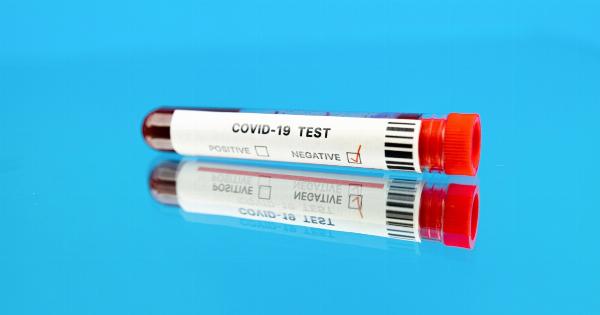In recent weeks, South Korea has been grappling with a surge in Middle East Respiratory Syndrome (MERS) cases, causing concern among the public and health authorities.
With 14 fatalities and 7 new cases reported, the country is working tirelessly to control the outbreak and prevent further spread of the virus.
Understanding MERS
MERS, also known as Middle East Respiratory Syndrome, is a viral respiratory illness caused by the MERS coronavirus (MERS-CoV). It was first identified in 2012 in Saudi Arabia and has since spread to several countries, including South Korea.
The virus primarily spreads through close contact with infected individuals, such as coughing, sneezing, or touching contaminated surfaces. It can also be transmitted from camels, which are believed to be a major source of the virus.
The South Korean Outbreak
The recent surge in MERS cases in South Korea can be traced back to a single patient, who was infected while traveling in the Middle East.
This initial case spread the virus to multiple hospitals and healthcare facilities, leading to a rapid increase in cases.
As of now, there have been 14 fatalities in South Korea due to MERS, raising concerns about the severity of the virus and the effectiveness of containment measures.
The government has implemented various control measures to limit the spread, including quarantine, contact tracing, and public education campaigns.
Efforts to Control the Outbreak
The South Korean government, in collaboration with healthcare professionals and international organizations, is taking swift action to control the MERS outbreak.
This includes identifying and isolating infected individuals, monitoring potential contacts, and enhancing hospital infection control protocols.
Contact tracing is a crucial aspect of controlling the outbreak.
Health officials are working to identify and monitor individuals who have come into contact with confirmed cases, ensuring they receive appropriate medical attention and are quarantined as necessary.
Intensive efforts are also being made to enhance hospital infection control measures. This includes training healthcare workers on proper hygiene practices, isolating suspected cases, and implementing strict protocols for handling infectious materials.
Public education is another key component of the response.
The government and health authorities are actively disseminating information about MERS, its symptoms, and preventive measures through various channels, including television, radio, and social media.
Public Concern and Precautions
The rising number of MERS cases in South Korea has stirred fear and anxiety among the public. Many people are taking extra precautions to protect themselves and their families from the virus.
Practicing good hand hygiene, such as washing hands regularly with soap and water for at least 20 seconds, is highly recommended. Using alcohol-based hand sanitizers can also be effective in killing germs.
Wearing a face mask in crowded places and maintaining a safe distance from individuals who appear sick are additional precautions that can help reduce the risk of infection.
Avoiding close contact with camels or consuming raw or undercooked camel products is also advised.
Experiences from the Past
This is not the first time South Korea has faced a major infectious disease outbreak. In 2015, the country experienced the largest outbreak of Middle East Respiratory Syndrome outside of the Middle East.
The outbreak lasted for several months and resulted in 186 confirmed cases and 36 deaths.
Lessons learned from the previous outbreak have helped in the response to the current situation. South Korea has implemented more rigorous control measures and is better prepared to handle the challenges posed by MERS.
Looking Ahead
Efforts to control the MERS outbreak in South Korea are ongoing.
The government and health authorities are closely monitoring the situation, implementing stricter measures as needed, and collaborating with international partners to ensure a robust response.
It is crucial for the public to stay vigilant and adhere to recommended preventive measures.
By practicing good hygiene, following official instructions, and seeking medical attention if experiencing symptoms, everyone can contribute to limiting the impact of MERS in South Korea.
As the situation evolves, it is important to stay updated with reliable sources of information, such as official government announcements and reputable health organizations.





























